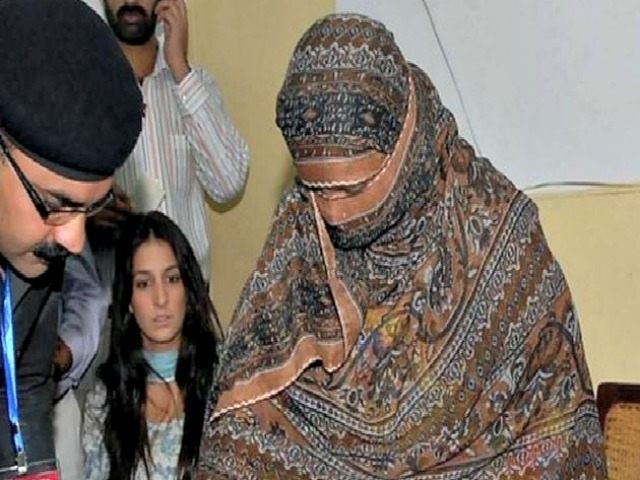More than 1,400 cases of blasphemy were registered in Pakistan in 2014, marking a new record for the prosecution of religious crimes in the country amidst growing protests of abuse and arbitrary arrests of Christians and other religious minorities.
Pakistan boasts some of the most severe blasphemy laws in the world, where freedom of speech is severely curtailed. Those guilty of “defiling the Prophet Muhammad” face the death penalty, while life imprisonment is given for damaging the Qur’an. “Insulting another’s religious feelings” can result in up to 10 years in jail.
The Pakistani Constitution states: “Every citizen shall have the right to freedom of speech and expression, and there shall be freedom of the press, subject to any reasonable restrictions imposed by law in the interest of the glory of Islam” (art. 19).
Human rights groups increasingly assert that Pakistan’s blasphemy laws are abused by extremists. False charges are often brought against minority groups in order to settle personal scores or even to seize property or businesses.
One of the best known cases is that of Asia Bibi, a Christian woman accused of blasphemy and subsequently sentenced to the death penalty. Her case made global headlines when two prominent politicians were assassinated after trying to help her.
In June, the U.S. Commission on International Religious Freedom (USCIRF) called on the U.S. government to recognize Pakistan as a “country of particular concern,” which would allow sanctions to be imposed on the Pakistani government for its misuse of blasphemy laws.
USCIRF contends that Pakistan’s selective and often arbitrary enforcement of the blasphemy law exceeds that of any other nation, and is often used to target religious minorities, such as Christians. Accusations of blasphemy have also served to incite mob violence, with people acting as vigilantes and taking the law into their own hands.
“The blasphemy law on its face flatly violates both freedom of religion and freedom of expression. Worse still, Pakistan vigorously applies this law,” USCIRF Commissioners Katrina Lantos Swett and Mary Ann Glendon said in an essay earlier this year.
Last week, the “Pakistan Institute of Labour Education and Research” organized an event in Karachi bringing together religious leaders and representatives from civil society to discuss questions regarding religious freedom. The seminar bore the title “Human Rights, Religious Freedom, Social Inclusion and Political Participation of Minorities.”
According to a spokesman for Karachi’s association of attorneys, it has become dangerous even for lawyers to defend a client accused of blasphemy. He recalled the case of the attorney Rashid Rehman, regional coordinator for the Human Rights Commission of Pakistan, who was threatened in full view of a judge, and later murdered in his office by two gunmen posing as prospective clients.
“Nothing has happened to bring the main culprits to the justice,” he said.
Pakistani Christians have long protested the lack of government protection from terrorist attacks and arbitrary accusations of blasphemy. A Taliban attack on two Christian churches in March resulted in the death of at least 14 people, with many dozens wounded, and a lack of police presence was credited with abetting the violence.
According to eyewitnesses, “some of the policemen who were supposed to be guarding these churches, were in a bar watching a cricket match instead.”
According to the Human Rights Commission of Pakistan (HRCP), in 2014 the Pakistani courts sentenced three people to death for blasphemy, as well as six to life imprisonment and three more to a two-year prison sentence.
The effects of the blasphemy laws extend beyond the sentences delivered in court, however, conferring an air of legitimacy on those who take the law into their own hands, since blasphemy is considered a “criminal offense.”
Last year, a Christian couple was beaten and burned alive in a brick kiln by a Muslim mob following rumors that they had burned pages from the Qur’an. They were later proved innocent, and 106 people were charged with their murder.
The two, who worked in a clay-baking factory, were kidnapped and held hostage for two days inside the factory. On Tuesday morning at 7:00 a.m. the two were beaten and then pushed into the brick kiln. The wife was pregnant.
According to one report, as the Christian couple was burning and protesting their innocence, the mob was shouting “Allah hu Akbar,” “death to blasphemers,” and “kill the infidel Christians,” at which Christian residents nearby fled from their homes to safety.
Follow Thomas D. Williams on Twitter @tdwilliamsrome

COMMENTS
Please let us know if you're having issues with commenting.